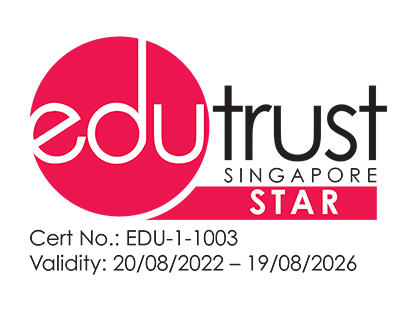7 Tips to Start an HR Career with Zero Experience

Starting a career in Human Resources (HR) with no prior experience may seem like a daunting task. However, with the right approach coupled with several strategic steps, you can increase your chances of securing your first job in the industry. In this article, we explore seven essential tips to help you apply for HR positions and kickstart your career in this dynamic field.
7 tips to begin your HR career:

1. Start networking
Since HR is a people-centric industry, get ready to network as much as you can. Developing business relationships can significantly help with your understanding towards the industry and enhance your job search. Here are ways to do so:
- Connect with HR professionals on LinkedIn
- Join HR-related associations or groups on social media platforms
- Attend workshops, webinars or industry-related events
2. Pursue mentorship
Engaging with an experienced HR practitioner for mentorship can assist you in grasping the nuances of the domain. A mentor can share their skills and experiences as well as offer guidance pertaining to job applications and interviews. They may even introduce you to potential entry-level job opportunities.

3. Gain experience via internships
If you are fresh to the workforce, you may consider applying for internships or entry-level positions within an organisation. Many companies offer HR internships or administrative positions that can provide exposure to HR operations.
Another way to gain experience is to take on volunteer work with non-profit organisations and local charities. You can assist them with various HR tasks such as recruitment, staff training, and payroll management. Even if the role isn’t purely HR-focused, hands-on experience in an office environment can help you hone necessary professional skills and establish connections in the industry.
4. Explore horizontal growth opportunities
It’s easy to think of your career path and advancement as a linear path. But what if there was an alternative approach—horizontal growth opportunities?
If you have been in your current role for a while and are interested in exploring opportunities within your organisation’s HR department, initiate a conversation with your supervisor or HR manager. Discuss the possibility of moving you to a new position or creating a customised hybrid role that aligns with the company’s needs.
Through this approach, you will not only broaden your skill set but also showcase your commitment to self-improvement. You will be able to distinguish yourself as a more attractive candidate for entry level-HR roles, as employers often seek individuals who are adaptable and open to reskill as well as cross-skill.

5. Tailor your resume, emphasise transferable skills
Before applying for any open positions in HR, it’s essential to tailor your resume and cover letter to highlight your relevant skills, education and qualifications you may have. Here’s how to make your resume stand out:
(a) Emphasise on transferable skills: Identify and list skills such as strong communication abilities, interpersonal skills, problem solving skills, project management, attention to detail, passion for helping people and teamwork.
Be sure to convey how these skills make you a great fit for the role. Employers tend to value these qualities in HR professionals, therefore, featuring them in your application materials can make a positive impression.
(b) Highlight your education: If you hold a degree in relevant fields, such as business, communication, psychology or social sciences, be sure to prominently highlight it in your application. Your educational background reflects your dedication to learning and can enhance your appeal as a candidate.
(c) Customise your cover letter: In your cover letter, express your passion for HR, your eagerness to learn and your dedication to the organisation. Include examples of leadership roles that you’ve played previously, such as organising a corporate dinner, managing a student club or partaking in the student ambassador programme.
6. Build foundation of HR knowledge
Don’t fret if you do not have a bachelor’s degree in Human Resource. Get started by seeking basic understanding of HR practices and principles. Invest time in reading HR-related books or tune in to podcasts to gain insights into the industry. This foundation will help you speak confidently about HR matters during interviews.

7. Earn certificates
Obtaining an industry recognised certification in HR and investing in professional development is a great way to improve your job prospects. For those looking to gain HR knowledge through formal education, a Graduate Certificate in Human Resource Management (E-Learning) may be your best choice.
This 100% online postgraduate programme offered by the Singapore Institute of Management (SIM) equips you with the skills and understanding to build solid and sustainable people foundations for an effective modern organisation. Additionally, you will also learn theories and techniques to help support and implement strategic approaches to the management of talent.
Talk to our friendly Student Advisors today to learn more about how the Graduate Certificate in Human Resource Management (E-Learning) can help you take the first step towards your HR career ambitions and expectations.





